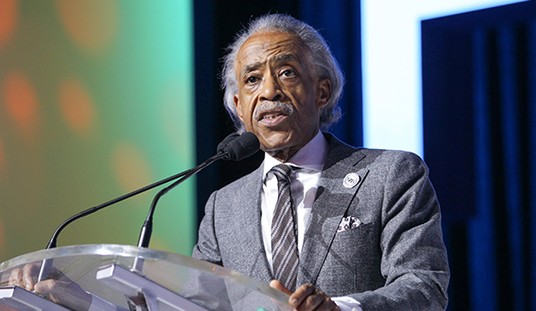WASHINGTON — If there’s any indication of how a sizable portion of the Democratic caucus feels about U.S. posture in the Muslim world heading into the next round of nuclear negotiations with Iran this week, it was summed up last week at a House Foreign Affairs Committee hearing by Subcommittee on Terrorism, Nonproliferation and Trade ranking member Brad Sherman (D-Calif.).
“Our entire national security establishment has picked up a new phrase: ‘pivot toward Asia.’ Which sounds like it’s going to mean more trade delegations to Tokyo and more Chinese language courses in our universities. But what I fear it really means is deciding that the fight with Islamic extremists in Africa and the Middle East is either over or is inconvenient,” Sherman said. “And redirecting all of our national security efforts toward confronting China in the South China Sea. Already the Pentagon is shifting its research proposals, they’re only interested in research that will help them shoot down Chinese planes or sink Chinese aircraft carriers.”
“Islamic extremism and the problems in North Africa and West Asia and all of Africa and the Middle East cannot be ignored just because there’s a dispute over some islands off the coast of China,” he continued. “And pivoting toward Asia sounds to me like trying to find a higher technology, more conventional foe for a national security establishment that is frustrated by the difficulties of dealing with opponents that do not wear uniforms.”
“It’s time for us to pivot toward Africa, the Middle East and West and South Asia where Islamic extremism still poses a threat to the United States notwithstanding the death of bin Laden.”
The Democratic caucus is still a group where many more of its members attend and speak at AIPAC each year than head to the “pro-peace, pro-Palestinian” version, J Street, where the administration sent Vice President Joe Biden this year.
And few measures before the House and Senate have been as consistently bipartisan as those demanding that the administration keep up pressure on Iran, on top of the bipartisan letters sent directly to President Obama over the past few years warning the commander in chief about getting the wool pulled over his eyes by the Islamic Republic.
Last week, Sherman and House Homeland Security Committee Chairman Mike McCaul (R-Texas), Chief Deputy GOP Whip Peter Roskam (R-Ill.), and Foreign Affairs member Grace Meng (D-N.Y.) led 59 other members of the House in a letter to Senate Majority Leader Harry Reid (D-Nev.) and Minority Leader Mitch McConnell (R-Ky.) asking that the Senate “swiftly” take up a bill passed in July that tightens sanctions against Iran’s energy and financial sectors.
That legislation passed a whopping 400-20.
“We believe that as the United States negotiates with the P5+1 group and Tehran, it is critical to maximize U.S. leverage against the Iranian regime. The possibility of tighter sanctions will enhance our leverage in the nuclear standoff between the Iran’s Supreme Leader and the international community. Despite Hassan Rouhani’s attempt to portray Iran’s government in a new light, the objective of the Iranian regime remains the same: the pursuit of a nuclear weapons capability,” the lawmakers wrote.
“While recent assessments of the progress of Iran’s nuclear program vary—with some estimating that Iran is only weeks away from producing weapons-grade uranium—what is clear is that time is running short. Protracted negotiations may give Iran more time to spin its centrifuges, while the threat of enhanced sanctions holds the promise of compelling Iran to give up its ambitions.”
The House members asked that the Senate take up the bill, which has the support to pass, without the “fear of short-circuiting diplomacy.”
They echoed the concerns heard across Congress for the past 100 days, even as President Obama was making his historic phone call to new President Rouhani: Why should we trust that things will be any different?
Foreign Affairs Committee ranking member Eliot Engel (D-N.Y.) noted at a hearing last week examining Rouhani’s short tenure thus far that despite the Iranian leader’s “charm offensive and gentle smile… it’s clear that Iran still poses a significant threat to the United States and our allies.”
The “intense pressure” of the slate of sanctions passed by Congress, Engel argued, “brought Iran back to the negotiating table, and it must be maintained – and strengthened if necessary — until Iran has taken verifiable steps to freeze and even dismantle its nuclear weapons program.”
The Democrat said he was “deeply troubled” by reports out of the initial P5+1 talks that the proposed agreement did not include a requirement to halt all uranium enrichment.
“I know the secretary of State has a profound interest in the legislation Congress is considering on Iran,” he added. “I hope the administration understands that we cannot take their concerns fully into account, nor truly understand events at the negotiation table, or grasp the impact our legislation may have on their efforts, if they do not do a better job of keeping Congress informed.”
“…There is still time to test Iran’s intentions, but that time is growing short.”
Yet as Under Secretary of State for Political Affairs Wendy Sherman heads to Geneva on Tuesday for another week of talks, the White House is mounting a campaign on the Hill to try to woo members over to their side.
Biden and Secretary of State John Kerry led the charge in the upper chamber last week, meeting with Senate Democratic leaders and members of the Senate Banking Committee in an effort to prevent the upper chamber from passing any additional sanctions against Iran — and putting President Obama in a harsh spotlight when such a bill lands on his desk.
On Tuesday morning, Obama will be courting a group of senators himself in the Roosevelt Room — leaders of the Senate Banking Committee, Senate Foreign Relations Committee, Senate Armed Services Committee and Senate Select Committee on Intelligence.
“The reason that the president will be having this meeting is because he has met regularly with and discussed regularly with members of Congress, in particular the Senate, what is happening with our negotiations with other members of the P5-plus-1 and Iran on this issue, the steps that we have taken to explore the potential for a diplomatic resolution to the challenge presented by Iran’s nuclear program. And it is very much in keeping with the method the president has employed thus far in this matter that he consult closely and regularly with leaders in the Senate on this issue,” White House press secretary Jay Carney said at today’s briefing.
“When it comes to our position on additional sanctions, I’m sure that this will be a topic, because it’s the president’s view that it’s the right thing to do for Congress to pause so that we can test whether or not the Iranians are serious about resolving this issue diplomatically.”
Carney argued that “it is important to recognize, as we’ve talked about, that the [sanctions] relief that would accompany an agreement for this first phase would be modest and it would be eminently reversible.”
Kerry, meanwhile, tried to argue that the special relationship between the U.S. and Israel — another consistent bipartisan priority in Congress — wouldn’t be harmed by Washington plunging forward with a nuclear agreement, as Prime Minister Benjamin Netanyahu says he fears Washington is heading with its eyes closed.
“I have great respect for his concerns about his country. The prime minister should express his concerns, and he has every right in the world to publicly state his position and defend what he perceives as his interests,” Kerry said at a press conference today with his Turkish counterpart. “We believe deeply in our commitment to Israel – deeply. And I have a long voting record, 100 percent record of support for our friends in Israel. And I can assure those friends and everybody else watching this that nothing that we are doing here, in my judgment, will put Israel at any additional risk.”
One of the Dems in Congress deeply skeptical of the administration’s next move is Kerry’s successor as chairman of the Senate Foreign Relations Committee, Robert Menendez (D-N.J.). Last week he penned an op-ed in USA Today cautioning that “we cannot substitute wild-eyed hope for clear-eyed pragmatism given Iran’s record of deception.”
“Tougher sanctions will serve as an incentive for Iran to verifiably dismantle its nuclear weapons program. When Iran complies, sanctions can be unwound and economic relief will follow,” Menendez argued. “This approach is in concert with our diplomatic efforts and consistent with previous actions taken by the international community. It’s a necessary insurance policy, too. Should Iran fail to negotiate in good faith or abide by any agreement, the penalties will be severe.”
Rep. Adam Schiff (D-Calif.), a member of the House Intelligence Committee, said “we have to go into these negotiations very skeptical.”
Still, Schiff pressed the administration’s line and Senate Intelligence Committee Chairwoman Dianne Feinstein’s (D-Calif.) take: that tougher sanctions now might scare Iran away from the negotiating table.
“We need the support of the international community to enforce sanctions,” Schiff said on CNN last week. “If they see us imposing unacceptable obstacles to a diplomatic course, it’s going to be a huge problem for us. So, will they come through, I don’t know. I don’t think we can look in Rouhani’s eyes and see whether he’s telling the truth, let alone see his soul. But I do think we ought to give the administration a chance to see if they can get to a good deal.”
Reportedly standing up to a deal being pushed by the U.S. at the last round of talks was one of those international allies, France. President Francois Hollande flew to Israel on Sunday to meet with Netanyahu, where Bibi praised Paris’ voice as “one of six” standing up for Israel at the P5+1.
Sen. Bob Casey (D-Pa.), who serves on the bipartisan National Security Working Group, said Friday on MSNBC that sanctions still need to be on the table.
“The problem we have now is that in the absence of a binding agreement that can be verified, those centrifuges are still spinning. The potential for the Iranian regime to develop nuclear weapons capability is still there,” Casey said. “So I believe that we should seriously consider additional sanctions. We’ll see what the Banking Committee does and I’ll await their determination. But to rule out any additional sanctions or the enforcement of existing sanctions I think would be a mistake.”
Reid seemed to sum up after a policy luncheon last week the conflict many Dems are feeling: “I hope we can work something out with Iran, but I am a person who really believes in the state of Israel.”









Join the conversation as a VIP Member